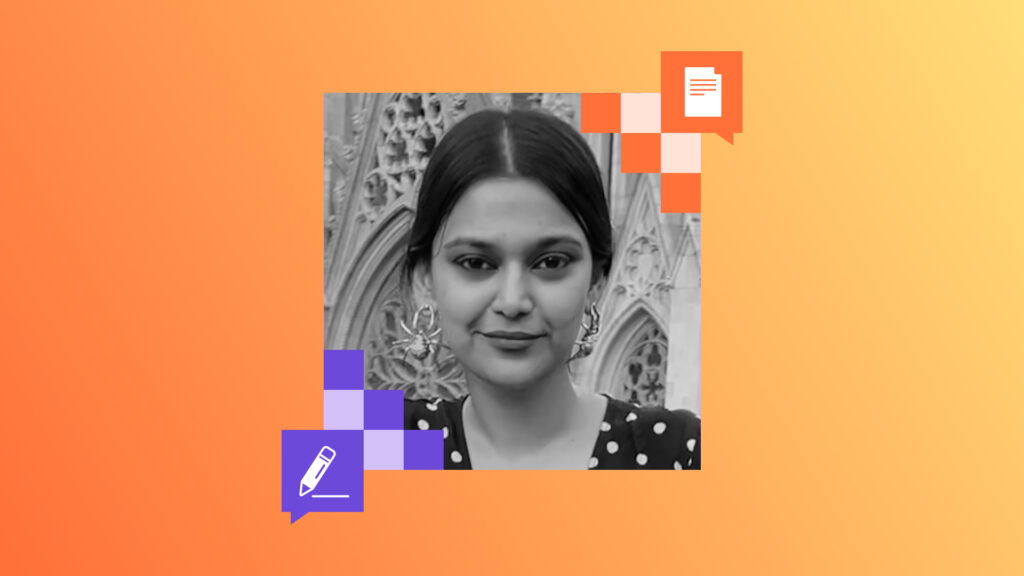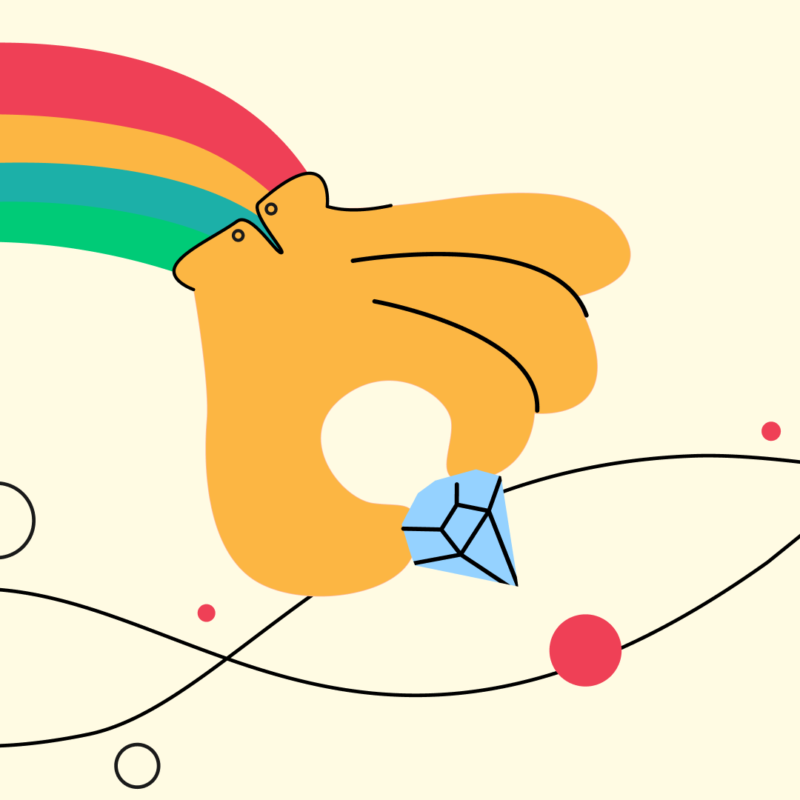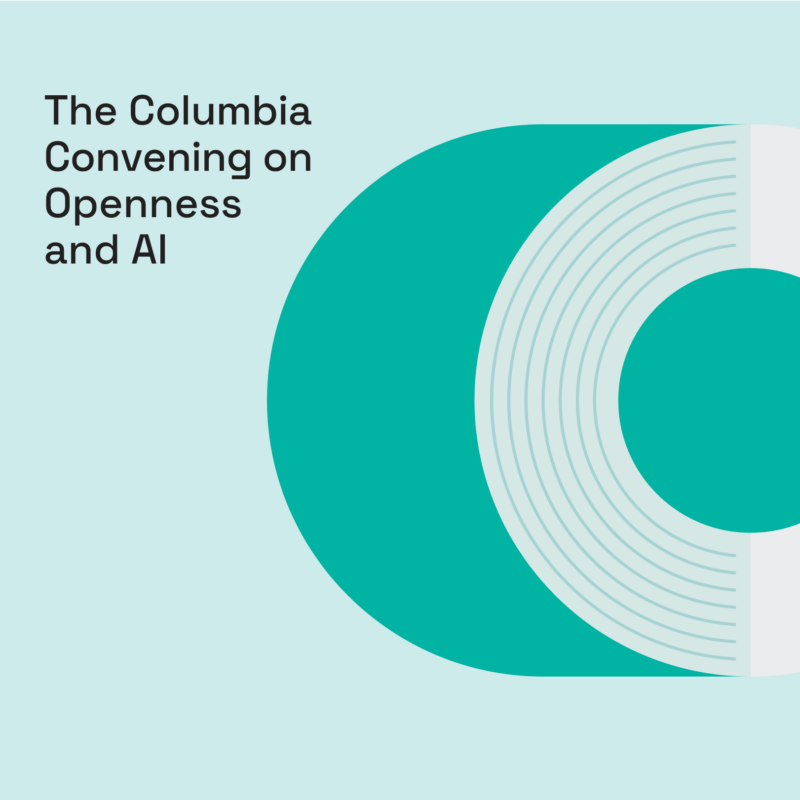A New York Times Magazine editor on her internet obsessions

Here at Mozilla, we are the first to admit the internet isn’t perfect, but we know the internet is pretty darn magical. The internet opens up doors and opportunities, allows for human connection, and lets everyone find where they belong — their corners of the internet. We all have an internet story worth sharing. In My Corner Of The Internet, we talk with people about the online spaces they can’t get enough of, the sites and forums that shaped them, and what reclaiming the internet really looks like.
This month we chat with Iva Dixit, a writer and editor at The New York Times Magazine. We talk to her about being ratioed on Twitter, an internet equivalent of a “healing sound bath” and the pieces she rereads to take a break from online discourse.
What is your favorite corner of the internet?
There is nothing I find more calming, more accepting and more placid than Lisa Eldridge’s makeup videos and their adjoining comments sections. As someone who spends so much of my time wading through the debris of online derangement — for me, watching her videos to relax while simultaneously reading the comments is the internet equivalent of receiving a healing sound bath. It’s just a lot of older women shyly confessing how they’d always thought makeup was never for them but now her videos have convinced them to finally give it a try in their 50s; some of them will open up about how they finally felt brave enough to try red lipstick or glittery eyeshadow for the first time, after learning how to apply those from one of Lisa’s videos, or how their husbands noticed their makeup for the first time after they followed one of Lisa’s tutorials.
Depending on my current obsession of the moment, I’ve been in the trenches of a lot of highly specific niche interest communities (skincare Reddit, fountain pen review sites, powerlifting message boards) across various platforms and I have watched even the politest of them descend into riots (which do not get me wrong, I also enjoy very much as a connoisseur of drama. I watched all 43 minutes of the original Tati Westbrook BYE SISTER video and I saw Bobbi Brown’s response to Meredith Duxbury minutes after she posted it on TikTok.) But I am just sort of struck by how for the past 13 years that Lisa’s been posting videos and I’ve been watching them, I have seen no name-calling in the comments and no casually tossed-off “what, THIS?” taunts of smug superiority towards Lisa herself (which is a highly specific form of internet trollery that really drives up my blood pressure). As I’m watching a video and actually reading the comments, I can’t help but internally cheer them on; I’ll be going oh hell yes @lizfrommanchester, I hope you try some lavender glitter on your eyelids next.
What is an internet deep dive that you can’t wait to jump back into?
In September 2020, I had decided to buy a film camera (for no reason just curiosity) and thus what began as a “best used film camera brand” Google search slowly escalated into an all-consuming fascination for the history of how the Soviet Union had a thriving photography and camera-manufacturing industry in its heyday — built entirely on copying the German and Japanese cameras of the time. Words like Zorki, Krasnogorskiy Mechanicheskiy Zavod, Zenit-E, and facts like how during the Cold War, the USSR apparently had the second biggest camera industry in the world, things like hidden secrets of shutters in Soviet cameras — I think I enjoyed learning about the Soviet camera industry far more than I enjoyed the Leica camera that I bought, that I used for one or two rolls of film and then forgot about. But my Soviet camera obsession continues till today and I still periodically watch videos breaking down the differences between a Zorky and a Kiev.
What is the one tab you always regret closing?
In the rare few moments when I exercise restraint and refrain from buying something in the moment, thinking “it’ll be there in the morning,” and when I’ve gone back and seen that it’s now sold out in my size or that someone else bought the ebay item I was eyeing, OH I wish I could say I was self-actualized enough to not be possessed with regret, but it really does make me clench my fists in annoyance (at myself).
What can you not stop talking about on the internet right now?
The film “Oppenheimer” has emerged as my Great Soviet Camera obsession of 2023.
What was the first online community you engaged with?
I’ve written a lot about how much my no-internet no technology boarding school in India has shaped my life and how I think and live today. But around 2006, my parents had finally gotten a computer and an internet connection, and during my holidays from my no-internet boarding school, I was occasionally allowed to go online.
At the time, I was a huge watcher of Hindi daily TV soaps, and I think my earliest interactions online were with a message board called IndiaForums, that had similarly daily-soap-obsessed people writing these highly detailed, utterly granular episode-by-episode recaps of all the soaps that I liked to watch at the time but I had missed out on months of it thanks to my no-tv-allowed boarding school. Then eventually they also started uploading Torrent links, so I was watching episodes of Kasamh Se and Kaisa Yeh Pyar Hai (at least when I could get them to load) in bulk, long before the concept of “binge watching” was invented in the current sense. Bless IndiaForums, because they would also put time stamps to the ad breaks and the almost-kissing scenes so you knew what to skip and what to fast-forward to.
If you could create your own corner of the internet, what would it look like?
That is too much responsibility for me. I think it would descend into chaos a lot sooner than I could predict.
Can you share a personal experience that makes you say, “this can only happen in 2023 on the internet”?
A few months ago I was at the center of a brief Twitter kerfuffle for my mildly contrarian opinions on the laundry and taxes line of dialogue from “Everything Everywhere All at Once.” I initially saw a few snarky QTs on the tweet, muted it and went to watch “John Wick 4,” and then started getting texts from friends asking if I was handling it okay, all the while being completely and benignly oblivious to what was the “it” they were referring to.
Turns out I’d been ratioed and pilloried into oblivion and had death and all sorts of misfortune wished upon me for my rather tepid criticism that the beloved Oscar-winning film is far from revolutionary or even romantic in how it equates labor and domesticity with conjugal love. (The L.A. Times film critic Justin Chang has a fantastic essay on this). I was fully aware I wasn’t going to make anyone happy, but even I was mildly taken aback at the strength of the vitriol (last I checked there were 3K quote tweets and counting!). However, an unexpectedly comical aspect to this all was that a few of the people frothing at the mouth at me had discovered my column on “Emily in Paris,” but they hadn’t bothered to actually read it. And perhaps it’s because of my vaguely European-sounding name, but they were convinced I was white and hence got doubly angry at me for, and I’m paraphrasing here but, “praising white female protagonists like herself” while “undermining narratives about POC and immigrants.” Which, sigh, self-explanatory.
What articles and videos are in your Pocket waiting to be read/watched right now?
I am unfortunately always, always caught up on everything ongoing in the current discourse, but for my own peace of mind I periodically go back to reread Burkard Bilger’s The Egg Men, about the high-octane lives of breakfast line cooks in Las Vegas and Tim Zimmermann’s Raising the Dead, an utterly chilling tale of a cave diver and how you never, ever mess with the water. Both are two of my favorite magazine stories ever written, and I like to reread them for pleasure as well as for learning how to write.
Iva Dixit is an editor and writer at The New York Times Magazine, where she most recently profiled Sean Paul, and where she has also written about the delights of eating raw onions, the mystifying popularity of “Emily in Paris,” the ”evils concealed by Indian Matchmaking,” and why “Bollywood Wives” was boring. Previously, she was on the editorial staff of The New Yorker, where she wrote about how skincare, real life and the internet all intersect while using prescription retinoids.



